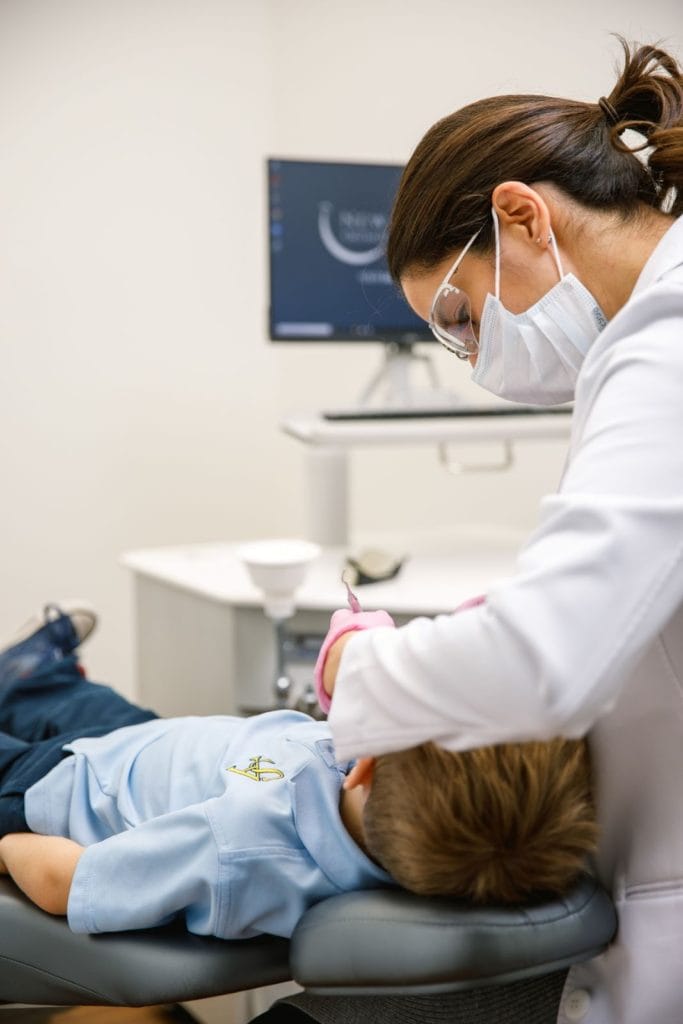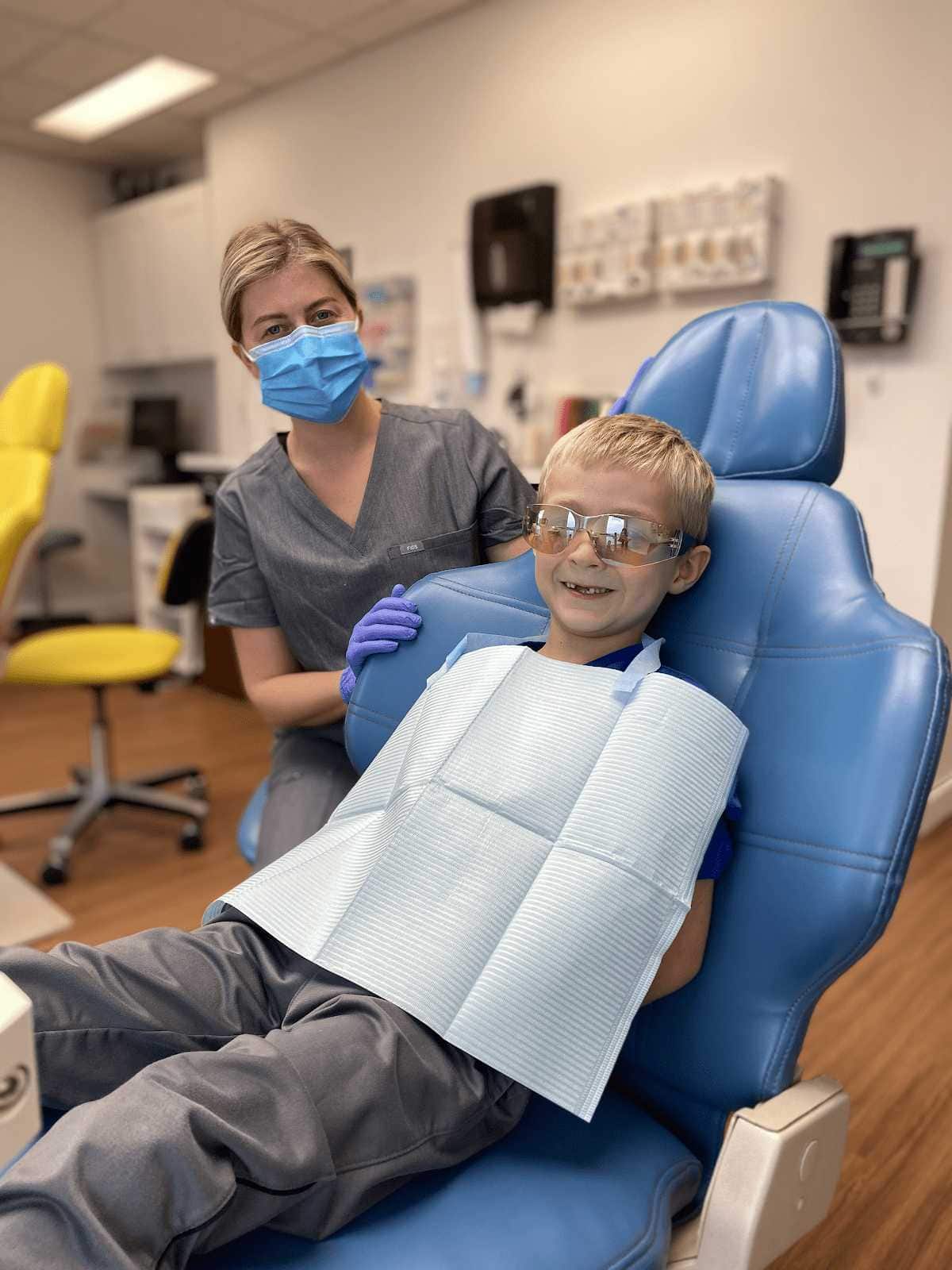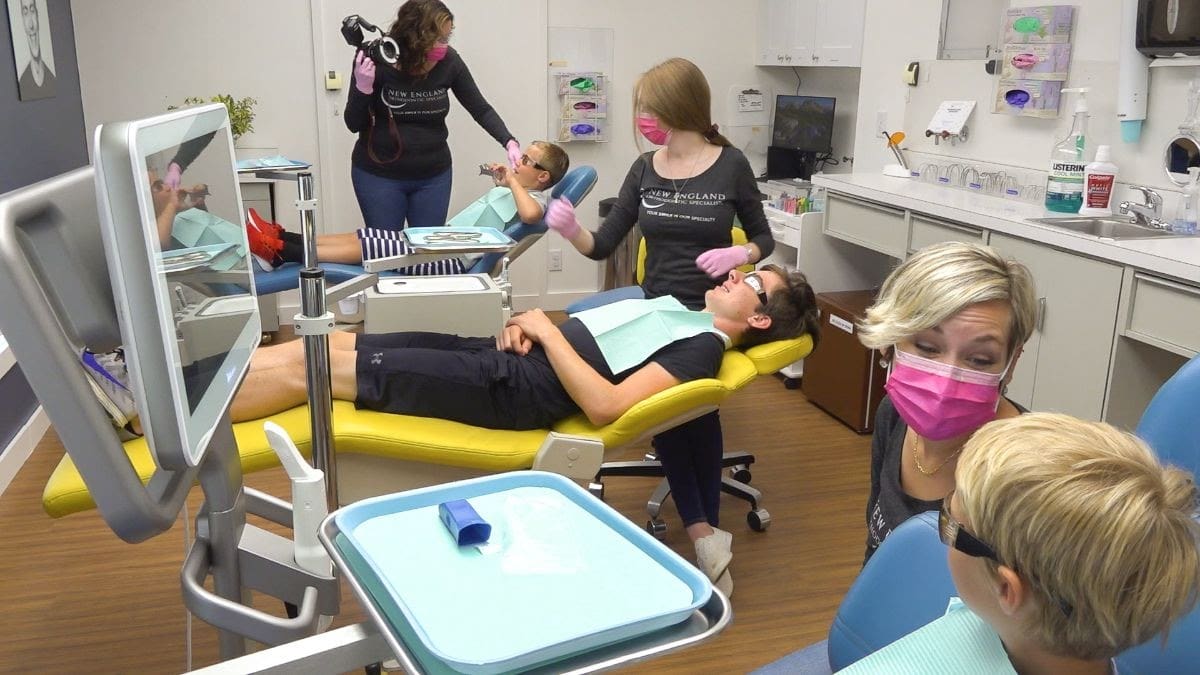Here at New England Orthodontic Specialists, we often hear from parents wondering when their child should first see an orthodontist. Many are surprised to learn that the American Association of Orthodontists recommends all children have an orthodontic evaluation by around the age of 7, but there’s a good reason for this! Most children this age will have enough dental “landmarks” in place that their teeth, jaw, and bite can be assessed to ensure everything is developing normally. An experienced orthodontist will also be able to identify any underlying issues, such as crowded teeth, a misaligned bite, or irregularities in the way the permanent teeth are erupting.
These visits don’t always result in a recommendation for immediate treatment. In fact, just a small fraction of the young patients we see are in need of an orthodontic appliance at that moment. These evaluations are still valuable, however! They offer parents peace of mind and get a child’s smile off to the best start possible. Early orthodontic evaluations also allow us to monitor a child’s oral health and development for any potential problems. To learn more about what to expect from these important visits, keep reading below!
What happens during an early orthodontic evaluation?
When you schedule a complimentary consultation with our practice, our doctors will be looking for anything out of the ordinary that could signal treatment is warranted, whether now or at some point in the future. By identifying these problems early on, we have the chance to correct them before they develop into something that requires more intensive treatment. There are many common orthodontic issues our doctors will be checking for during this first visit, including the following.
Misalignment
Aside from the cosmetic impact of crooked teeth, they can also be harder to clean and are more susceptible to uneven wear and tear. If these issues are left untreated over time, it can eventually affect both the shape and position of the surrounding gum tissue.
Tooth loss
As the placeholders for our permanent teeth, baby teeth matter more than you may think! These primary teeth also tend to fall out in a pretty specific order. If your child has any significant deviation from that pattern, it could mean there is a developmental issue that requires further attention.
Spacing issues
These problems can occur when a tooth is lost prematurely, where one has never developed, or if a child has teeth that are too small or spaced too far apart.
Tooth eruption
We expect most children to have at least four permanent molars and up to four permanent incisors by around the age of 7. Any more or less than this could indicate a potential problem with missing, crowding, or extra teeth.
Overbite
Front teeth that noticeably protrude may be viewed as primarily a cosmetic concern, but they can also increase the risk of potential injury to the permanent teeth and affect a child’s speech.
Underbite
Underbites can be caused by problems with either the teeth or jaws. This usually involves the lower jaw growing too far forward, or the upper jaw growing deficiently.
Posterior Crossbite
A posterior crossbite can cause crowding and may cause the jaw to shift from one side to the other so the top and bottom teeth can fit together. A narrow upper jaw can also be associated with a narrow nasal passage.
Anterior Open Bites and Deep Bites
These bite problems occur vertically. In bites that are too deep, the top teeth completely cover the bottom ones when biting, which can indicate a small lower jaw. With an open bite, the overall bite doesn’t overlap enough.
What are the benefits of early orthodontic evaluations?

One of the biggest benefits of seeing children early in life is that it allows us to use a proactive approach to their orthodontic care, rather than simply reactive. This puts us in a position to provide them with the care and treatment they need at the best possible time! Additional benefits include:
Help guide jaw growth
In childhood, the mouth and jaw are still growing and developing. This is the ideal time to help guide that growth with orthodontics! This helps ensure a child has a healthy bite in place as they get older. If treatment is recommended at this stage, it’s often far less invasive than it would be for someone whose jaws have already stopped growing.
Break bad oral habits
Habits like thumb-sucking, tongue thrusting, and extended bottle or pacifier use can cause misaligned teeth and even change the shape of the jaw. The sooner they’re addressed, the less destructive they may be! There are a number of treatments available to help correct these bad habits and reverse any damage already done.
Go beneath the surface of your child’s smile
Our complimentary consultations include a complete oral exam by Dr. Diana or Dr. Neil. This exam may include the use of advanced diagnostic tools, such as digital x-rays and intraoral scans, which help us gather a better understanding of your child’s oral health. These technologies are particularly useful because they give us a three-dimensional look at the teeth, soft tissues, and underlying bone with just a single scan, allowing our doctors to get a good idea of what’s happening beneath the surface of your child’s smile!
If there’s no indication that immediate treatment is necessary, we’ll invite you to continue visiting our office every 6-12 months so we can continue monitoring your child as they grow. We’re much more likely to catch and treat any emerging issues early on this way! These recall visits are always free of charge.
Give your child the gift of a lasting smile
When you bring your child in for an early evaluation with an experienced orthodontist like Dr. Diana and Dr. Neil, you’re setting them up for a lifetime of healthy, happy smiles! These regular visits are one of the best ways to maintain your child’s oral health as they grow. If your child is around 7 years of age and ready for their first orthodontic visit, get in touch New England Orthodontic Specialists today to schedule their complimentary evaluation!

